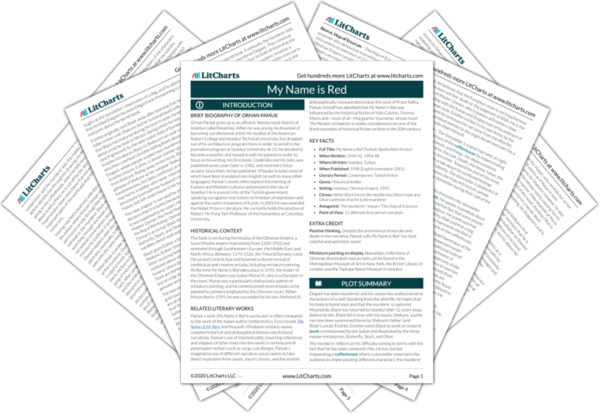Shevket is often compared to a ghost. On one level, this emerges from the fact that she is a ghostly presence in the house, felt and sometimes heard but never seen. The veil covering her face further emphasizes her ghost-like quality, as if she exists behind a kind of mysterious haze. At this point in the novel, Shekure is ghost-like because she remains trapped in a marriage to a man who is probably dead, but not proven to be so. As a result, Shekure remains caught in a liminal (in-between) state of being, unable to move forward with her life.
